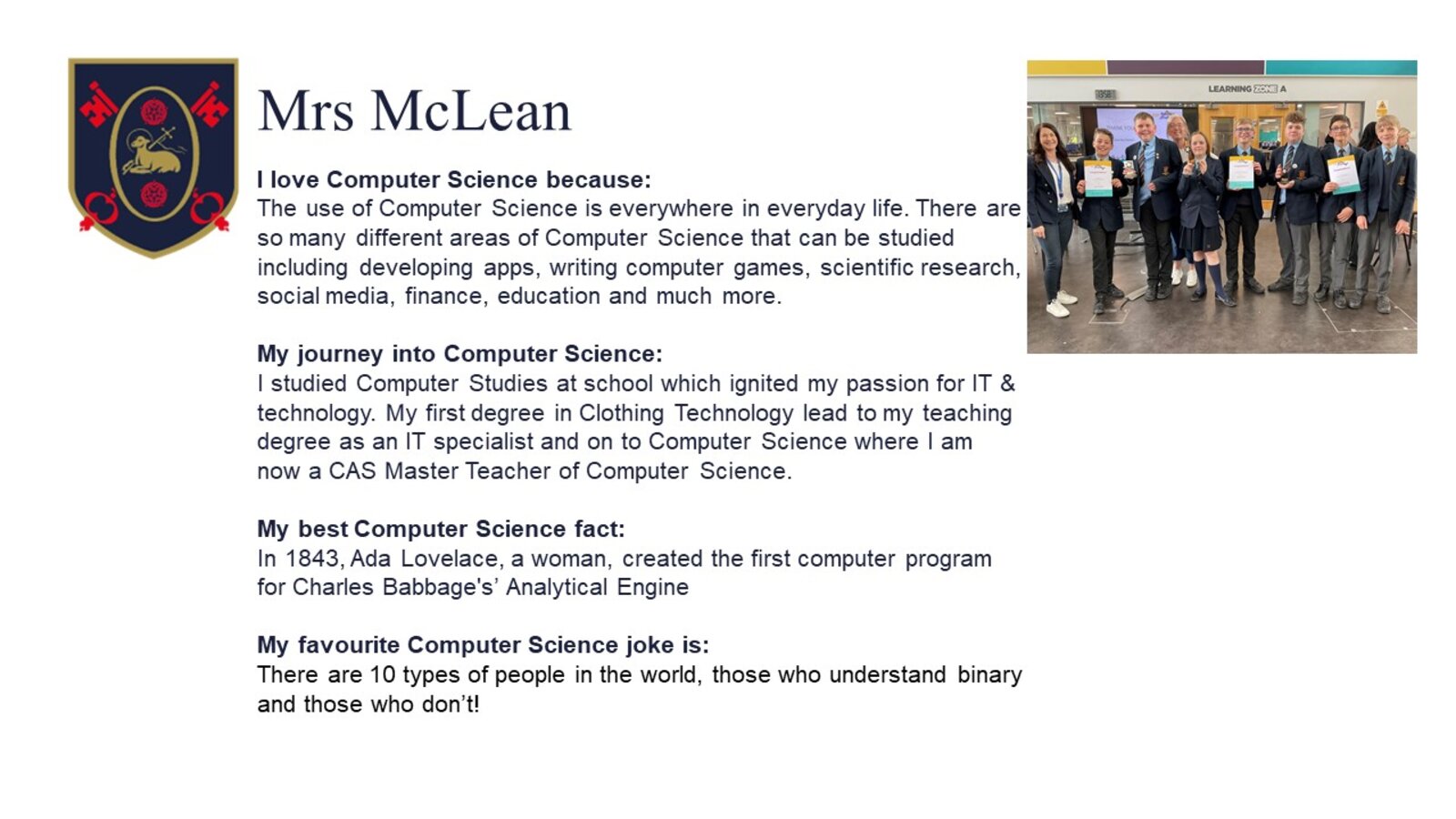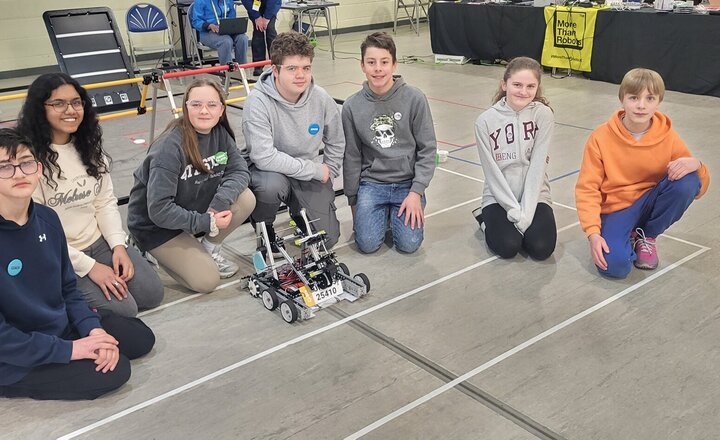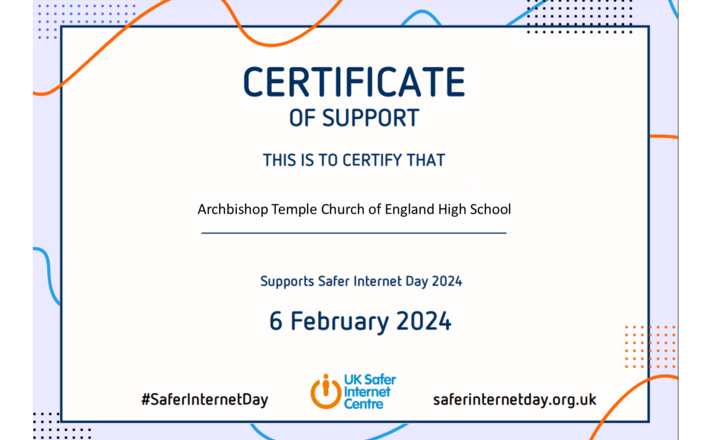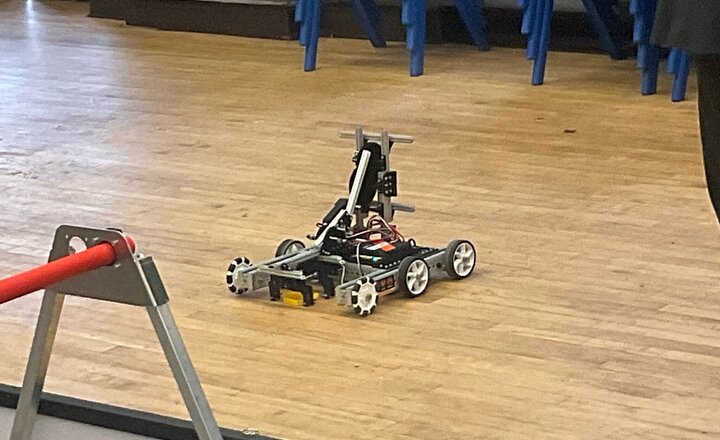Subject: Computer Science
CURRICULUM INTENT
Computing is at the heart of everything we do in modern day life. In Computer Science we will deliver a high-quality computing curriculum that will equip our pupils to use computational thinking and creativity, this will enable them to see, understand and be part of change across the world in future generations. There are 3 main strands of computer science Engineering and Technology, Mathematics and Logic and Science which together solve problems to build solutions linking both natural and artificial systems. Building on this knowledge and understanding, pupils are able to create programs, systems and content using IT in the classroom.
We strive to build resilient users of technology, nurturing children in the right and wrong uses, with the faith that they will make the right decisions. There are many opportunities for our young computer scientists to shine their light in lessons and extra-curricular opportunities such as the robotics club, who have enjoyed many years of success at competition learning a multitude of skills along the way. We seek to empower all of our learners, we the belief that they will use their creativity to solve problems both in everyday life and in the classroom.
“I instruct you in the way of wisdom and lead you along straight paths.”
IMPLEMENTATION
Programmes of Study
Year 7
In Year 7, pupils will focus on fundamental concepts and principles of computer science, using computational thinking in a variety of computing and non-computing situations. They will spend time studying online safety and information reliability, using networks comparing wired and wireless, word processing skills will be taught whilst focusing on researching information and its credibility to promote a cause, spreadsheets and use of the block based programming language Scratch to learn the fundamentals of programming.
Year 8
Here, computational thinking skills will be developed, further strengthening pupils ability to solve problems in a variety of settings. Studies will include; Online safety, Developing for the web learning web development skills, Binary representations considering many encoding and decoding systems including binary, virtual robot programming in Scratch to build on skills learnt in Year 7, Vector graphics using InkScape, Computer Systems considering hardware & software, machine learning & artificial intelligence and an introduction to the text based programming language Python.
Year 9
In Year 9, ongoing development of skills will continue, where pupils will start to consider algorithmic thinking using flow charts to further strengthen programming outcomes. They will also gain a deeper understanding of cyber security, data representation, a more in-depth look into the text based programming language Python and the impacts of technology on today’s society.
Click here to view the Year 9 Options information for Computer Science.
Year 10
Pupils will follow the OCR Computer Science J277 specification (first teaching September 2020) which has 2 examination papers to be completed in the final year of study. Computer systems and computational thinking, algorithms and programming are covered across the examination papers.
Year 11
In Year 11 pupils revisit the topics studied in Year 10 with a deeper understanding to enhance their understanding of the topics whilst continuing to develop the algorithmic and computational thinking of solving problems. Preparation of revision materials and practicing key concepts will be a key part of this year of study.
IMPACT
Marking and Assessment
Refer to ARR policy (Firefly)
Formal assessment takes place at the end of each unit or topic covered, this will take the form of interactive quizzes and tests as well as formal interim tests under examination conditions. Regular feedback is given via both Firefly and verbally for lesson and homework tasks. Self and peer evaluation also takes place frequently.
Examinations
Component 1: Computer Systems (80 marks/50%/90 min exam)
Introduces students to the central processing unit (CPU), computer memory and storage, data representation, wired and wireless networks, network topologies, system security and system software. It also looks at ethical, legal, cultural and environmental concerns associated with computer science.
Component 02: Computational thinking, algorithms and programming
Students apply knowledge and understanding gained in component 01. They develop skills and understanding in computational thinking: algorithms, programming techniques, producing robust programs, computational logic and translators.
Practical programming
Students are to be given the opportunity to undertake a programming task(s) during their course of study which allows them to develop their skills to design, write, test and refine programs using a high-level programming language. Students will be assessed on these skills during the written examinations, in particular component 02 (section B).
Revision Guides / Resources
CGP GCSE Computer Science OCR Revision Guide
CGP GCSE Computer Science OCR Exam Practice Workbook
OCR GCSE(9-1) Computer Science J277 PG Online
OCR GCSE(9-1) Computer Science J277 Clear Revise PG Online
Staff Details
Mrs H McLean – Head of IT and Computing
Careers and Progression
Computer Science is present in almost every industry and part of life and therefore enhances the majority of other subjects available on the curriculum. Algorithmic and computational thinking are key problem solving skills and the fundamentals can be applied to any situation, especially where a system in required to solve a problem.
Studying GCSE Computer Science will allow progression to A level and university providing a further stepping on to a multitude of careers which may include; Cyber Crime and protection, social media manager using creativity online, Online shopping and e-commerce, computer games development or robotics of the future. The list really is endless, providing a platform into many different areas.
Computer Science 5 Year Curriculum Plan




